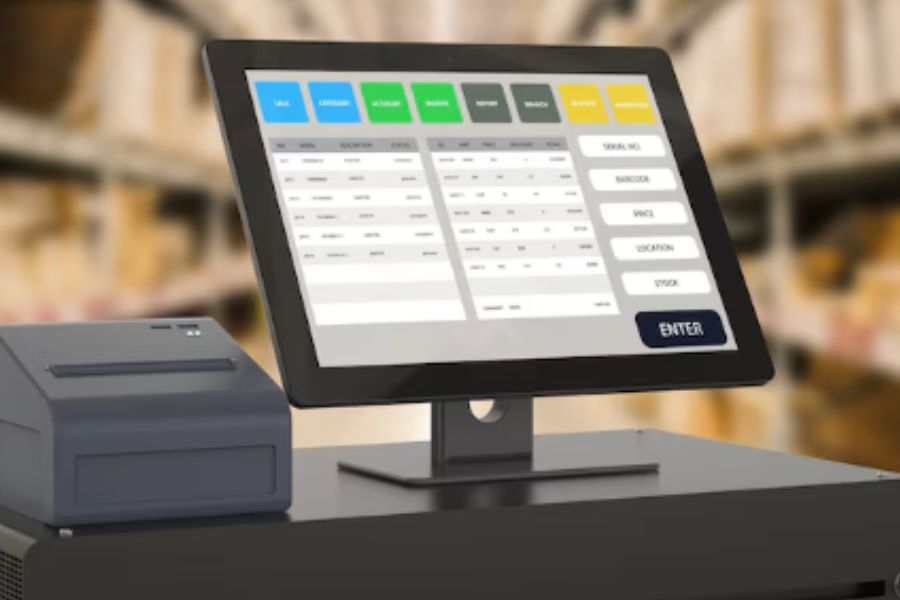Running a retail store can be a complex challenge. Apart from the day-to-day activities, one of the biggest challenges is protecting your store from various types of scams. Retail fraud is a severe problem that affects many businesses. In early 2020, scammers were able to steal a staggering £29.7 million from unsuspecting victims. Although online shops are often targeted, brick-and-mortar stores are not immune. Therefore, it’s crucial to be aware of the signs of a retail scam. This knowledge can help protect your store from financial harm. In this article, we will discuss common scams faced by retailers and ways to safeguard your business.
5 Common Retail Scams To Watch Out For
Gift card fraud
Gift cards, now common even in the smallest of retail shops, have become a double-edged sword.
They offer convenience but are prone to fraud. Scammers trick customers into loading funds onto these cards for purported emergencies, only to later use the collected card details and PINs to steal those funds.
Additionally, the shift toward digital gift card solutions has led to a spike in phishing attacks, where customers are deceived into buying gift cards under false pretenses. Retailers aren’t immune to these schemes, as their databases, containing sensitive customer information, can fall prey to sophisticated cyberattacks.
Inventory manipulation
In the retail environment, inventory manipulation is a significant concern, often resulting from either a lack of oversight or deliberate fraudulent activity.
Employees, particularly in smaller or family-run stores, may inadvertently mismanage inventory due to a lack of training or by juggling multiple roles. This confusion can lead to unintentional errors or, in some cases, provide opportunities for deliberate fraud.
The consequences of such manipulation are far-reaching, affecting not just financial statements but also business decisions and market valuations.
Shoplifting collusion
Shoplifting, a familiar threat to retailers, can sometimes involve internal staff, leading to collusion between an employee and an external thief.
In such scenarios, the employee might covertly assist the thief, either by disabling security devices or by simply turning a blind eye. This type of fraud is particularly challenging to detect in smaller shops with fewer staff members, where employees might have established trust and learned to evade security measures.
The impact extends beyond lost goods, as it can also damage the morale of honest employees and create an environment of distrust.

False cash returns
The fake cash return scam remains a persistent issue, where individuals return stolen or previously used items for a refund, exploiting stores with less stringent return policies.
This form of fraud can be highly damaging, as it directly affects a store’s revenue and can even go undetected for extended periods, especially in stores with weaker administrative and security protocols. It illustrates the need for robust verification processes for returns and exchanges to protect against such exploitation.
Credit card fraud
Credit card fraud is a prevalent form of retail scam that not only leads to financial loss but can also severely damage a store’s reputation. Thieves no longer need the physical card to commit fraud; instead, they can use stolen customer details to make unauthorized transactions remotely.
The vulnerability of retailers has increased with the growing preference for contactless payments and online shopping, which provides more opportunities for card-not-present fraud. This highlights the importance of securing customer data and maintaining high-security standards to safeguard against such breaches.
How Businesses Can Prevent Retail Scams
Integrate secured devices and software
Enhancing security infrastructure is pivotal in warding off retail scams. Implementing a robust fraud detection system, which may include third-party services, can significantly reduce instances of fraudulent activities. These systems are designed to scrutinize transactions for any suspicious patterns and red flags. They protect against a wide array of fraudulent practices, including card testing, friendly fraud, and chargeback fraud.
For the most effective protection, retailers should carefully assess potential solutions, ensuring they choose a high-quality fraud detection service that aligns with their business scale and specific needs. The right system not only detects fraud but also helps in building trust with genuine customers by safeguarding their transactions.
Train your staff
Combatting internal fraud, such as sweetheart deals, begins with clear and transparent policies. Employees may not always recognize the gravity of giving discounts to friends, which is why retail owners must establish stringent policies against such practices. Training should emphasize that while discounts are a marketing tool, unauthorized use is a form of fraud and will be treated as such.
To curtail sweethearting, maintaining meticulous inventory control is crucial. This can be achieved through an advanced point-of-sale (POS) system like ConnectPOS, which provides detailed tracking and reporting features. A state-of-the-art POS system not only streamlines transactions but also offers comprehensive inventory management capabilities, making it difficult for fraudulent activity to go unnoticed.
Use video surveillance to monitor actions
Video surveillance is a deterrent to both internal and external theft. Installing high-quality cameras in strategic locations, and at multiple angles, ensures comprehensive monitoring of the retail space. Employees are less likely to engage in theft if they know they are being watched, and even the most audacious shoplifter will find it challenging to evade a well-covered surveillance system.
In addition to acting as a deterrent, surveillance footage can be invaluable in investigating incidents of theft and providing evidence for legal proceedings. It’s essential that retailers not only install these cameras but also regularly maintain and update the surveillance system to ensure optimal operation and coverage.
Implement item-level RFID tagging
Radio-frequency identification (RFID) tagging at the item level is a powerful tool in the battle against retail fraud.
By embedding RFID tags on products, retailers can track items throughout the store in real-time. This technology not only streamlines inventory management but also enhances security by alerting staff when items unexpectedly leave the premises or are moved in a suspicious manner. RFID systems can be integrated with POS systems to ensure that all items are accounted for during transactions, reducing the risk of both theft and unintentional loss.
Employ point-of-sale system checks
Utilizing advanced features in point-of-sale systems can serve as a critical checkpoint against retail scam. POS systems like ConnectPOS can be configured to require manager approvals for discounts, returns, or voids, thus adding a layer of oversight to transactions that are commonly exploited for fraud.
Additionally, integrating secure payment processing with encryption and tokenization reduces the risk of credit card fraud. Training staff to be vigilant when processing transactions and to recognize potential red flags can also help in preventing fraud at the point of sale.
Develop a clear return policy
A well-defined and communicated return policy is essential in mitigating the risk of return fraud. The policy should outline acceptable return conditions, required documentation, time frames, and restocking fees, if applicable.
By setting strict guidelines and requiring proof of purchase for all returns, retailers can help discourage fraudulent return attempts. Moreover, clear communication of the return policy to customers at the time of purchase and via visible signage can reduce misunderstandings and disputes.
Conduct regular audits and inventory checks
Regularly scheduled audits and inventory checks are critical components of an effective retail scam prevention strategy. These checks help in identifying discrepancies early and can indicate patterns that may signify ongoing theft or fraud.
By regularly analyzing inventory data, retailers can spot trends that may warrant further investigation. Consistent audits also send a message to staff that the store is serious about preventing loss, which can itself deter internal theft.
Foster a culture of loss prevention
Creating a workplace environment that emphasizes the importance of loss prevention can have a profound impact on minimizing retail fraud. This involves educating employees about the various forms of fraud, the signs to watch for, and the consequences of participating in such activities.
Encouraging employees to take ownership of loss prevention and rewarding them for identifying potential security issues can be powerful motivators. When staff members understand how fraud affects the business and, by extension, their livelihoods, they become active participants in the fight against loss.
Conclusion
In summary, effectively addressing the complexities of retail scam demands a comprehensive strategy that melds cutting-edge security technology, proactive staff training, and rigorous operational policies. The tactics we’ve explored, from leveraging sophisticated POS system checks to nurturing a culture of vigilance, are crucial in building a solid defense against the multifarious types of retail fraud. Such scams pose a risk not only to a business’s financial health but also to the foundational trust that underpins customer relationships.
By giving loss prevention and fraud protection the attention they deserve, retailers can create a secure transactional environment that bolsters consumer trust and loyalty, which are indispensable for the longevity and prosperity of any retail operation.
For those seeking to integrate a sophisticated technological solution, ConnectPOS offers a suite of features designed to combat retail scams. Its secure payment systems and advanced inventory management capabilities make it a valuable ally in your security arsenal. Reach out for more information on how ConnectPOS can contribute to a comprehensive strategy for protecting your business from the ever-present threat of retail scam.



